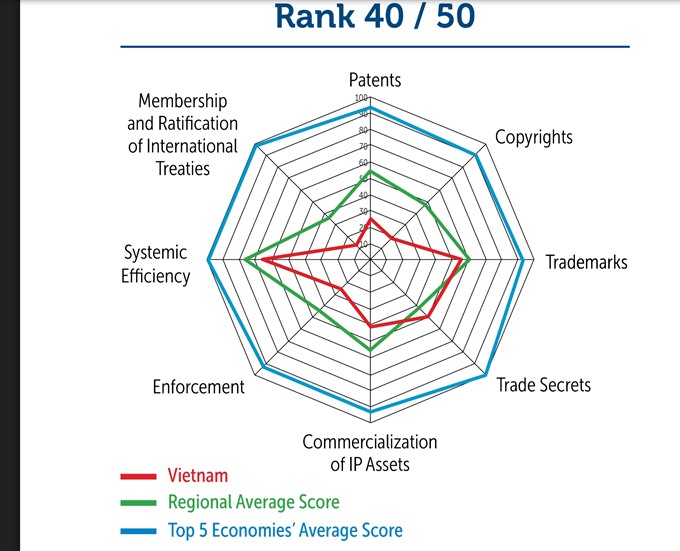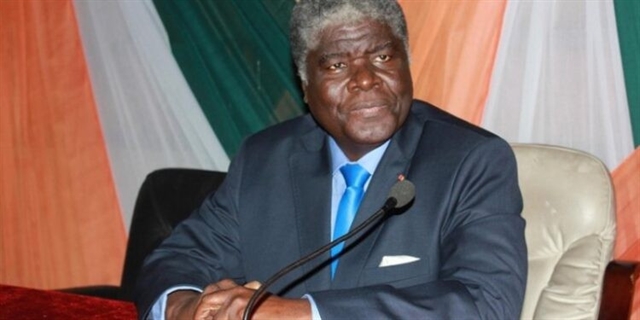 Economy
Economy

Việt Nam has taken steps towards aligning its intellectual property (IP) framework more closely with its Southeast Asian peers, according to the sixth annual International IP Index, which analyses the IP climate in 50 world economies, released yesterday (Feb 27) by the US Chamber of Commerce Global Innovation Policy Center.
 |
| An index analysing intellectual protection in 50 economies, including Việt Nam, being released Tuesday by the US Chamber of Commerce Global Innovation Policy Center. — Photo Courtesy of GIPC |
HCM CITY — Việt Nam has taken steps towards aligning its intellectual property (IP) framework more closely with its Southeast Asian peers, according to the sixth annual International IP Index, which analyses the IP climate in 50 world economies, released on February 27 by the US Chamber of Commerce Global Innovation Policy Center (GIPC).
The report ranks economies based on 40 indicators that benchmark activities surrounding patent, trademark, copyright, and trade secrets protection.
Việt Nam’s overall score has risen from 30 per cent of the total possible score (10.34 out of 35) in the 5th edition to 33 per cent (13.19 out of 40) in the current 6th edition of the index.
This reflects the 2017 amendments to the Penal Code as well as a strong performance on some of the new indicators, according to the Index.
Việt Nam ranks 40th out of 50 countries.
Patrick Kilbride, vice president of GIPC, said: “Việt Nam has taken some positive steps forward towards strengthening its IP framework to compete more closely with its Southeast Asian peers, increasing its score.
“With continued investment in strong IP rights, Việt Nam can harness this positive momentum to become a leader in the region, stimulate its domestic capacity for innovation, and enhance its global competitiveness."
David Hirschmann, president and CEO of GIPC, said: “The results of this year’s Index illustrate a growing global commitment to IP-driven creativity and innovation.
“The majority of countries took steps to strengthen their IP systems and foster an environment that encourages and incentivises creators to bring their ideas to market.”
While a clear pack of leaders in IP protection top the rankings, the leadership gap has narrowed, he said.
“There is still work to be done, and we hope governments will use this Index as a blueprint to further improve their IP ecosystems and grow competitive, knowledge-based economies.”
The US, UK, and EU remain atop the rankings, though the US’s lead narrowed due to systemic challenges to the US patent system. Japan and Singapore also appear in the top 10.
The Index shows that a majority of economies benchmarked are building more effective foundations for IP policy. Indonesia, Thailand, and Việt Nam, for example, each have long-standing programmes to enhance co-ordination between government agencies responsible for IP enforcement.
Việt Nam implemented some fundamental IP initiatives to help increase awareness about the importance of protecting IP rights and streamline IP rights enforcement across the Government.
The Government passed legislation to strengthen the criminal standards for IP infringement, which will strengthen the enforcement environment for IP-intensive industries operating in Việt Nam. — VNS




